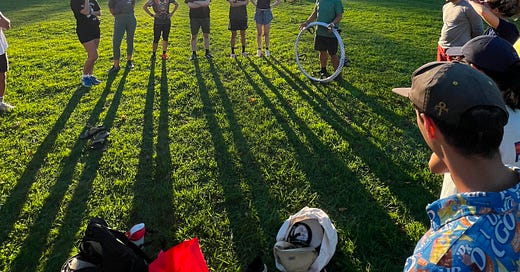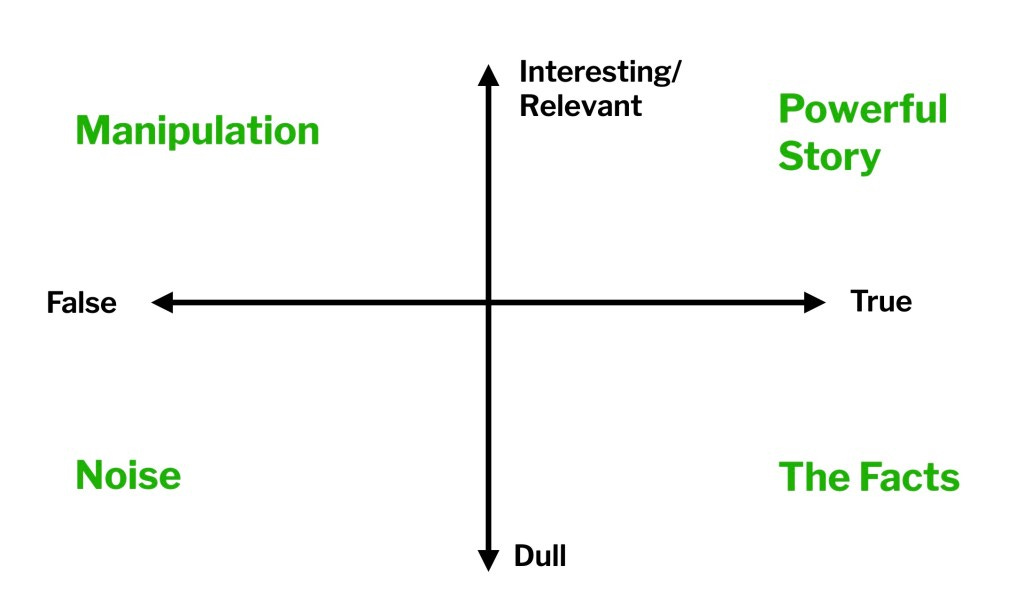AI Trump Pope, expressing gratitude, and a powerful story
Hey friends!
I’ve been up in Auckland today for roundnet (spikeball)!
There’s a pretty big group of players up there, so it was awesome to head along to their pot-luck lunch session and meet some new people!
It was also awesome to catch up with my friend Andrey and check out where he’s staying in Mt Roskill.
I am exhausted, so I’ll just leave you with some interesting things I’ve found across the internet this week.
Talk soon,
Ben x
Three quotes I liked
Oprah Winfrey in What I Know For Sure on emphasising gratitude, surfaced in James Clear’s newsletter:
"The more you praise and celebrate your life, the more there is in life to celebrate. When you concentrate on what you have, you'll always end up having more."
Anthony De Mello in The Way to Love, surfaced in Tim Ferris’ newsletter:
“How could you go about creating a happy, loving, peaceful world? By learning a simple, beautiful, but painful art called the art of looking. This is how you do it: Every time you find yourself irritated or angry with someone, the one to look at is not that person but yourself. The question to ask is not, ‘What’s wrong with this person?’ but ‘What does this irritation tell me about myself?’”
Found this one from G.K. Chesterton in Seamus Boyer’s newsletter:
“Don't ever take a fence down until you know the reason why it was put up.”
One interesting diagram
I found this diagram in Seth Godin’s blog, and I want to share it with you! It’s about the powerful story.
It’s impossible to communicate everything. When we share an idea, we can work to make sure it’s true, but when we share all the facts, we’re simply boring people. Stories are relevant, creating a narrative and tension and change.
A manipulator doesn’t care if the story is true. They’ve succeeded by taking advantage of our goodwill, our assumption that things asserted to be true usually are. A manipulator brings us a story that creates emotion–and causes action that the recipient ends up regretting. Manipulation isn’t resilient, because sooner or later, we discover that the world doesn’t work the way we were led to believe.
The stories we tell are a choice. Reciting facts lets us off the hook, but telling a true story that causes change is a powerful responsibility.
Four good online reads and watches
It’s been 100 days since Trump became president (again). Here’s all the silly and destructive stuff he’s done in that time. Some of it is entertaining and some of it is saddening.
The structure of church youth groups is a welcoming hunting ground for someone like Josh, who used his position of power as a youth leader to give him the opportunity to get close to victims. Jake, one of Josh’s victims, shared his story with Webworm. Both moving and horrifying and frustrating.
It’s fascinating to watch Steven Bartlett’s life. This recent interview with Vogue is interesting. His behind the scenes channel is great.
25 Principles of Adult Behavior by John Perry Barlow. Many bullets seem obvious, but a few of them really resonated.
We’re living in such a cursed timeline
This week, The White House shared an AI-generated image of President Trump as the Pope. What.






